CHANGE Illinois’ Policy Director Ryan Tolley testified in favor of streamlining local governments and trimming them at a hearing before the state’s Property Tax Relief Task Force’s Government Consolidation Subcommittee. The task force, formed by Governor J.B. Pritzker, is exploring solutions to lower the heavy property tax burden on Illinois taxpayers through government consolidation.
Tolley recommended the committee consider two proposals: halting the creation of new units of local government and streamlining administration and services among school districts. Illinois taxpayers are plagued by some of the highest property taxes in the nation and, by a large margin, leads the nation in its number of local government units.
Tolley’s full testimony is available below. A report from the chairman of the Government Consolidation Subcommittee is expected to be released soon.
Testimony from CHANGE Illinois
Subject: Testimony for the Property Tax & Government Consolidation Subcommittee
To: The Subcommittee on Government Consolidation
From: CHANGE Illinois
My name is Ryan Tolley. I am the Policy Director for CHANGE Illinois, a nonpartisan, nonprofit focused on achieving ethical and efficient governments and elections. The tasks facing this committee are not small. I am encouraged by the fact that all of you have stepped up to meet the challenges that lie ahead. Today, I am here to present two opportunities I’d like the committee to consider and work alongside us to accomplish. While I am not ignorant to the fact that these solutions will not completely alleviate the high property tax burden Illinois taxpayers bear, they can set us on a better path. That we cannot take lightly.
The first policy solution I would like this committee to consider is extending the state’s moratorium on the creation of local government units. Illinois leads the nation in its number of government units, by an alarming amount. Local governments, in particular, add costs for taxpayers because, as you know, those government units levy additional property taxes. Prior to the current four-year moratorium, 384 new local governments were created since 1998. When you factor in how many governments were dissolved during the same period, Illinois saw a net increase of 148 added units of local government in that time period.
A large portion of the local government units in Illinois are “special purpose districts.” Officials in the Illinois comptrollers’ office have said it’s often difficult to track these government units as they “have the most difficulty providing accurate and timely financial reports and maintaining administrative records, which result in decreased levels of accuracy in financial reporting. Factors such as obtaining the correct number of districts, names of government officials and financial data make efficient collection and analysis of such special purpose districts challenging.”
It is apparent from the Illinois comptroller’s office statement that, at this moment, it is difficult for the state to have an accurate representation of how many units of local government exist and what the financial cost of those governments are to taxpayers. Along with extending the moratorium on local government, we need a comprehensive report of all existing local government units and their current financial status. At the very least, we should extend the moratorium until we understand the financial burden placed on taxpayers by existing local governments and whether these units are truly necessary. A shortcoming of the current moratorium is that, after four years, it expires, without any corresponding requirement to evaluate why Illinois has so many units. Let’s understand the root cause of the issue and explore how it can be corrected. A comprehensive report on local government units will enable us to examine possible efficiencies and to write better policy for how local governments are created moving forward.
The second solution I invite this committee to consider is to create a school district efficiency commission. Two bills introduced in 2019, HB3053 and SB1287, received bipartisan support. One would allow voters to approve the sharing of administrators among multiple districts to reduce costs and get more funding into classrooms. The other would create a school district efficiency commission to recommend the optimal numbers of districts, school enrollments and areas ripe for reorganization. The commission would be balanced between those within the public education system and legislative and executive branch appointees.
School districts typically account for two-thirds of a taxpayer’s local property tax bill and it is in our best interest to perform a comprehensive review to determine how we can streamline services, particularly if those services result in a better education for our public school students.
I greatly appreciate the opportunity to present these solutions to the committee and I am happy to answer any questions you may have.
Thank you for the time and opportunity to speak with you all today.
